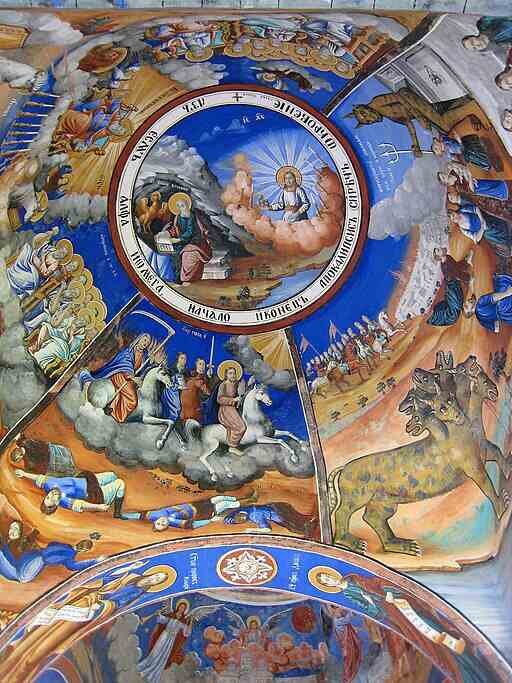Eucharistic Prayer
The Eucharistic Prayer is a central and profound prayer within the Christian liturgy, particularly in the context of the Holy Eucharist. It is a moment of deep reverence and thanksgiving, where believers offer praise and gratitude to God for the gift of His Son, Jesus Christ, and His sacrifice on the cross. In this article, we will delve into the significance of the Eucharistic Prayer and explore some of the prayers that are recited during this sacred ritual.
The Eucharistic Prayer (Prex Eucharistica in Latin ), also called Great Praise, is a central part of the Catholic Mass said by the priest. The Eucharistic Prayer is followed by the Lord’s Prayer, Embolism, Agnus Dei and Communion.
The Meaning of the Eucharistic Prayer
The Eucharistic Prayer is a solemn moment of communion with God, where believers express their faith in the real presence of Jesus Christ in the bread and wine. It encompasses thanksgiving, consecration, and supplication, serving as a bridge between the earthly and the divine. Through this prayer, the faithful are invited to participate in the mystery of Christ’s sacrifice and to deepen their relationship with Him.
Structure
The Eucharistic Prayer consists of the following parts:
1. Preface : solemn introduction which concludes with the singing or recitation of the Sanctus ;
In Latin:
Sanctus, Sanctus, Sanctus
Dominus Deus Sabaoth.
Pleni sunt cæli et terra gloria tua.
Hosanna in excelsis.
Benedictus qui venit in nomine Domini.
Hosanna in excelsis.
Roman Missal in English:
Holy, Holy, Holy Lord God of hosts.
Heaven and earth are full of your glory.
Hosanna in the highest.
Blessed is he who comes in the name of the Lord.
Hosanna in the highest.International Consultation on English Texts (ICET) produced an ecumenical version that at that time was adopted by Catholics, Anglicans, Lutherans, Methodists and others:
Holy, holy, holy Lord, God of power and might,
heaven and earth are full of your glory.
Hosanna in the highest.
Blessed is he who comes in the name of the Lord.
Hosanna in the highest.
During the Preface, the priest says, “The Lord be with you.” The people reply, “And with your spirit” (the people should not raise their hands). The priest says, “Lift up your hearts,” and the people respond, “We lift them up to the Lord” (from Lam 3:41); again, the people should not raise their hands because this is a gesture used only by the priest. The priest is offering this prayer on behalf of all the people. It’s a time for our most profound concentration, free of earthly concerns, completely in spirit with God.
2. First epiclesis: first invocation to the Holy Spirit over the bread and wine which will soon be transformed into the Body and Blood of Christ
This is an invocation prayer where the priest prays that the Father sends the Holy Spirit to change the bread and wine so that they may become the Body and Blood of Jesus. The priest says, with hands extended: “Therefore, Oh Lord, we humbly implore you: by the same Spirit graciously make holy these gifts….” (Euc. Prayer 111).
3. Institution narrative
Narrative of what Jesus did and said at the Last Supper. Particularly important are the words of consecration : “this is My Body”, “this is My Blood”, “do this in memory of me”. Elevation is also typical , i.e. raising the consecrated wafer and the chalice as soon as you have finished pronouncing the consecratory words.
4. Memorial or anamnesis
Prayer in which it is emphasized that one is remembering what Jesus did;
5. Second epiclesis
Second invocation of the Holy Spirit on the faithful;
6. Remembrance
Remembrance of the earthly Church and of the heavenly Church, and in particular of the deceased;
7. Solemn final doxology
The Anamnesis, Offering, Intercessions, and Final Doxology: This portion gives us time to ponder and lengthen the mystical moment. The priest tells God the Father that the Church has been faithful, “Therefore, as we celebrate the memorial of His death and Resurrection,” and follows with the offering, “We offer you in thanksgiving this holy and living sacrifice.”
Next, the priest prays for all (intercessions), the Pope and the local bishop, and those who will receive the Eucharist. This part concludes with the Doxology “Through him and with him…” (Romans 11:36) and “Great Amen” Giving praise to heaven.
Prayers within the Eucharistic Prayer
The Eucharistic Prayer is a sacred and profound moment in Christian worship, where believers enter into a deep communion with God through prayer and the reception of the Eucharist. It is a time of thanksgiving, consecration, and intercession, where the faithful offer their hearts and souls to God. Through the prayers within the Eucharistic Prayer, believers are invited to encounter the presence of Christ and to be nourished spiritually. May this prayer continue to inspire and uplift believers as they participate in the mystery of Christ’s sacrifice and receive His body and blood in the Eucharist.
Prayer of Thanksgiving:
“Father, we give you thanks for the gift of your Son, Jesus Christ. We offer you praise and adoration for His life, His teachings, and His ultimate sacrifice on the cross. We are grateful for the redemption and salvation that He has brought to us, and we humbly offer our thanks for the grace and mercy poured out upon us.”
Prayer of Consecration:
“Lord Jesus Christ, Son of the living God, we invoke your presence and your blessing upon these gifts of bread and wine. Through the power of your Holy Spirit, transform them into your body and blood, given for us and for the forgiveness of our sins. May this sacrament nourish our souls and unite us with you and with one another.”
Prayer of Intercession:
“Heavenly Father, we lift up our prayers and intentions before you. We pray for the Church, that it may continue to proclaim your Gospel and bring hope to the world. We pray for our leaders, that they may govern with wisdom and justice. We pray for the poor, the suffering, and the marginalized, that they may find comfort and assistance. We offer our petitions to you, trusting in your mercy and love.”
Prayer of Communion:
“Lord Jesus, you invite us to partake in your body and blood, to be united with you in a profound and transformative way. As we receive this sacrament, grant us the grace to be transformed into your likeness, to be strengthened in faith, and to be instruments of your love in the world. May this communion deepen our relationship with you and empower us to live as your disciples.”
Note: The prayers provided above are examples commonly used within the Eucharistic Prayer, but variations may exist depending on specific liturgical traditions and practices.
Sources: PinterPandai, Catholic Resources, Liturgy Office England and Wales


